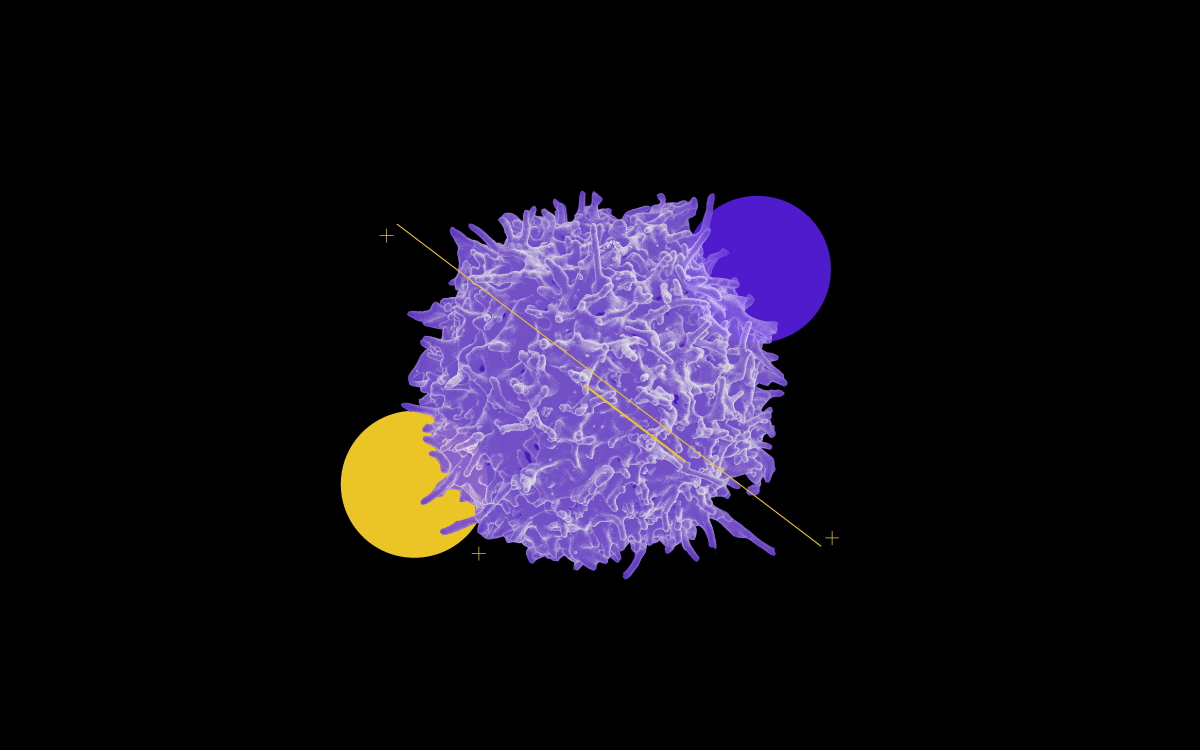Digitalis Press
The Digitalis Press writes on the science and technologies that underpin our work in Investments, Proving Grounds, and Commons.
We believe that accurately identifying and articulating the most critical unmet needs in health is the first and most fundamental step in deriving solutions that positively impact health at scale. A meaningful understanding of such needs requires a broad view, one that embraces how questions of science and technology are tied inextricably to economic, policy, and social circumstances and histories.

As medicine has grown more complex and costly, the way to organize its delivery has had to adapt. How has the work of delivering care evolved, how has it been integrated with the health insurance system, and what trends have emerged that point to ways in which hospitals may continue to evolve?
Notes on Engineering Health

Scientific publications have been the lingua franca of scientific discovery and knowledge, the edifice on which trust is built. To understand how academic publishing got to the structure we know today and think of ways to improve it, it is helpful to understand the story of scholarly publishing, the technological advances that occurred along the way, and the forces and incentives that shape current behaviors and challenges.
Notes on Engineering Health

The late neurologist Oliver Sacks had his fair share of experience with experiments on chemical compounds altering brain functions. He wrote beautifully in books and articles about how he experimented on himself both to relieve pain and to explore unvisited corners of his self. He was a keen observer of how mental diseases work and what is available to treat them. How did we get to produce such neuro-active compounds? Are the nervous system and the brain like any other organs? Where is neuropharmacology going?
Notes on Engineering Health

The leaves are falling in the northeast, which can only mean one thing—it's open enrollment season. Time to wade through excruciating details in order to choose the level of health coverage that you deem necessary, covering every possible (high) price point. Why do people in the United States do it this way?
Notes on Engineering Health

In the US, the number of people alive aged 65 or older increased from 4.9 million (4.7% of the total U.S. population) in 1920 to 55.8 million (16.8%) in 2020. While this demographic shift is a testament to progress in healthcare, and a decrease in fertility rate, it also presents unique challenges, including the increasing prevalence of frailty among older adults…
Notes on Engineering Health

From the organism to the organ, the cell to the organelle, the molecule to the atom, biologists have descended into the living matter not only describing it but seeing and photographing it. Whether to convince by their explanatory power or compel by their beauty, images of biological phenomena have transformed how we approach the field.
Notes on Engineering Health

While we have written about other aspects of climate change in these notes before, we have not yet addressed the core aspect of climate change: the heat itself. What are the consequences of too much heat on humans, animals, and societies? In other words, how hot is too hot?
Notes on Engineering Health

I’m excited to announce I’m joining Digitalis Ventures as an Entrepreneur-in-Residence. The arc of my career has been driven by a fundamental belief that we can identify emergent simplicity from the complexity of biology, provided enough data and algorithms that model the underlying science. At each step along the way, however…
Notes on Engineering Health

“Xenotransplantation is the future, and always will be”. The apocryphal quote by the late Stanford surgeon and heart transplantation pioneer Norman Shumway highlights the hopes and difficulties of this endeavor. Xenotransplantation, or transplanting an organ from one species to another, concentrates many biological challenges and some thorny ethical considerations.
Notes on Engineering Health

Decisions in times of crisis can have long-lasting effects on an entire system, and be hard to change when incentives created by short-term decisions then become deeply entrenched. One perfect example of this phenomena is the health insurance system in the United States. Why does your employer pay for your health insurance? Is this a good thing?
Notes on Engineering Health

“The role of the infinitely small in nature is infinitely large.” Louis Pasteur. Fermentation is the first example of biotechnology in human history. While spontaneous fermentation predates the human species, the earliest human efforts at fermentation date from the Neolithic period (7,000 to 1,700 BCE)…
Notes on Engineering Health

The role of scientists, and biologists in particular, has been to describe possible futures, predict the likeliest path to get there (through deterministic models, for example), confront the reality of where those paths actually lead, then revise their hypotheses and carry on…
Notes on Engineering Health

Since the onset of the Covid-19 pandemic in March 2020, the march of crises across the front pages of the world’s newspapers has been relentless. Myanmar. Afghanistan. Ukraine. Omicron. Monkeypox. Drought. Recession. We have reached the point where crisis seems to be an endemic state of affairs. Is this the result of an increase in communication via digital tools, or are the risks we are facing today of a different nature than before?
Notes on Engineering Health

In order to capture the awe-inspiring photographs recently taken by the James Webb Space Telescope, NASA scientists and engineers spent 30 years and $10 billion figuring out how to tightly pack dozens of mechanical limbs and instruments into a package that could be safely delivered to the second Lagrange Point, almost one million miles from the Earth in the exact opposite direction from the sun, and then carefully unfolded and deployed…
Notes on Engineering Health

Ideas of the symbiosis between biological life and information provide a provocative new way to explore more deeply not just the intersection of life sciences and data sciences, but also our understanding of social, economic, and cultural determinants of health. These are themes we expect to continue to explore in our work for years to come.
Notes on Engineering Health

Aging can be defined by sequential or progressive changes in an organism that lead to an increased risk of debility, disease, and death. It is actually the major risk factor for most pathological conditions that limit health span and promote chronic disorders including immuno-senescence, cardio-metabolic disorders, osteoporosis, sarcopenia, arthritis, cataracts, neurodegenerative diseases, and most cancers…
Notes on Engineering Health

Although Watson and Crick famously solved the structure of DNA in 1953 from groundbreaking crystallography work by Rosalind Franklin and Maurice Wilkins, the ability to “read” or sequence DNA was not scalable until the invention of the Sanger sequencing method in 1977. Sanger’s innovation and the ones that followed slowly paved the way to today’s large-scale genome sequencing, with the current state of technology at each step largely determining the problems the scientific community was then able to focus on.
Notes on Engineering Health

The idea of a fully deterministic world held sway in the West until very recently. While tools to describe the unknown were developed in the 16th century when Italian mathematicians began to formalize the odds associated with various games of chance, it was not until the early part of the 20th century that the formal analysis of randomness and the mathematical foundations for probability were introduced, leading to their axiomatization in 1933…
Notes on Engineering Health

Human breastmilk is a living, dynamic fluid that supports the optimal nutrition of infants. It has an incredibly wide range of nutrients, immune factors, hormones, and metabolites. While many of these components are stable during lactation, some vary significantly in response to maternal diet, infant health, time of day, or whether the meal is starting or ending. In many ways, human milk is the ultimate personalized nutrition.
Notes on Engineering Health

Another year ends and instead of writing about the many challenges in front of the world at the moment which we thought did not carry a very positive message for the festive season, we decided to look back on the subjects we covered in the opening section of these Notes during 2021 and see if any updates on them were in order.
Notes on Engineering Health

Accounts of absurd or tragic interactions with the American healthcare system are common. A growing sub-genre of these stories involves surprise billing—many such overwhelming experiences have been recounted from trips to the ER to the result of routine medical testing. Today, on the eve of Thanksgiving, I am sharing a personal story that encapsulates some of the most infuriating idiosyncrasies of our current American system.
Notes on Engineering Health

The ubiquity of electronic health records (EHRs) has supported the creation of transformative digital tools to better monitor, diagnose, and treat patients. But, EHRs also pose serious privacy and security concerns. How big of a problem is it? Why should we care? And what types of opportunities will open up to make sure EHR data is treated appropriately?
Notes on Engineering Health

If every organism has a shared origin, then there must be some basic biological principles that are at play in humans as well as in much “simpler” organisms. The idea that certain organisms can be studied and used to acquire knowledge on other organisms led the way to new fields of research and the development of a myriad of the models (zebrafish, yeasts, bacteria, phages, and, of course, mice and monkeys to name a few) that drive much of modern biology.
Notes on Engineering Health

Does having two X chromosomes set one back when it comes to being understood and treated by the medical profession? The answer seems to be yes in many instances. Here are five striking examples where there are clear differences between diseases men and women get, as well as the way they are treated.
Notes on Engineering Health

While machine learning may deliver clinical benefits, the work to understand mechanistic insights is key to not only predict but prevent and treat underlying conditions. We hope that all these innovations will serve couples trying to conceive and lower the cost barriers to reproductive technologies, but recognize that the real impact of the financing gold rush in this area is yet to be seen.
Notes on Engineering Health

In the late 1960’s, the idea to record patient information in electronic form rather than on paper emerged. The goal of the first EMR, presented by Lawrence “Larry” Weed, was to allow a third party to independently verify a diagnosis in order to improve patient outcomes. The first EMR was developed in 1972 by the Regenstrief Institute and was welcomed as a major advancement in healthcare / medical practice.
Notes on Engineering Health

Measuring the effects of climate change and pollution on health is hard but the consensus is that they are overwhelmingly negative. To understand the ramifications of a worsening climate crisis, it is useful to make a distinction between the impact on health and on healthcare delivery.
Notes on Engineering Health

The global COVID-19 pandemic caused an unprecedented number of challenges for our health systems during 2020. Many of these health challenges, however, have been persistent problems for years. For example, according to data released by the Center for Disease Control and Prevention (CDC), almost one-third of COVID-19 infections in the U.S. have affected black Americans though they represent only 13% of the U.S. population…
Notes on Engineering Health

2020 has been the year of airway inflammation. Everyone became an immunologist in record time with a specialization in infectious disease and a fellowship in lung damage. Words like cytokine (storms) and R0 have become common lingo in households. The difficulty of understanding and treating airway inflammation, however, was no stranger to the medical community, despite lengthy efforts to better understand targeted therapies to ameliorate its effects.
Notes on Engineering Health

Although the maxim “Let food be thy medicine, and let medicine be thy food” is generally agreed to be an apocryphal quote by Hippocrates, there are good reasons why it still resonates as an immutable truth. Looking at the healthcare industry from a standpoint of health—as we try to do at Digitalis—regularly brings us back to nutrition as a key pillar of a healthy life. In particular, our attention this month was attracted by a number of studies carefully looking at large datasets that highlight again the key importance of diet and nutrition.
Notes on Engineering Health

This month we are introducing a new section of the newsletter, First Five, a curated list of topics that we are working on along with a bit of commentary and links to some of the content (scientific papers, books, podcasts, video, etc.) that is motivating our work. Our hope is that this new format will add some additional openness about our unfinished work, and will further facilitate the free flow of ideas with our readers.
Notes on Engineering Health

While a lot of research has been focused on understanding the genetic causes of disorders in the hope to fix problems at the gene level, a number of disorders cannot be solved using this method alone — whether because they are multigenic or of unknown genetic cause. As a response, a growing trend has been to characterize pathologies according to their metabolic phenotypes. New techniques have allowed clinicians and researchers to measure more accurately a wider array of metabolites and nutrients, shedding new light on biology and disease.
Notes on Engineering Health

The choreography of immune cells continues to be better understood, the reasons why we seem to be developing more allergies are being plumbed (from the hygiene hypothesis to the role of the microbiome), the way to treat symptoms are being advanced, but there is still a deep lack of understanding why some foods or common allergens are more prone to excite the immune system than others. Uncovering these differences will open the door to understanding the root causes of allergic reactions and engineer ways to modulate the immune response which is critical as the number of people worldwide with allergies is increasing.
Notes on Engineering Health

There are numerous studies correlating low levels of vitamin D in plasma to increased risk of varying health maladies. Cancer, autoimmune disorders, general innate immunity, hypertension/other cardiovascular events, diabetes types 1 and 2, neuropsychiatric function, pregnancy outcomes, and all-cause mortality have all been cited as conditions potentially mediated by a patient’s Vitamin D status.
Notes on Engineering Health

From the 1950s when the double helix structure of DNA was unveiled to the CRISPR editors of the past few years, progress toward being able to engineer biology consistently and at high fidelity has been constant. Our ability to treat biology as an engineering discipline may even be reaching the point where it can be tasked with solving problems such as the current coronavirus pandemic.
Notes on Engineering Health

As the current coronavirus crisis evolves, the key question will eventually shift from how we should we manage this pandemic to how can we be better prepared for the inevitable next one. What tools can we develop to make us more agile and effective when a virus strikes again?
Notes on Engineering Health

In these troubled days, it certainly can feel like we are approaching the end of civilization as we have known it. The Doomsday Clock has never been closer to midnight (currently just 100 seconds away) and the obvious level of unpreparedness of societies facing the ongoing coronavirus crisis has not done anything to reverse the somber ticker.
Notes on Engineering Health

The fact that the broad population can’t calculate or has poor instinct for statistics such as positive predictive value is one thing, but more serious concerns about public health and safety are raised when the main clinical actors in the medical profession are less than proficient in understanding basic statistical tools.
Notes on Engineering Health

The search for causal inference when randomized clinical trials are problematic (and even when they are not) has long been a goal of epidemiological research. Taking advantage of the rise of Genome Wide Association Studies (GWAS) and the wealth of data they have produced, epidemiologists have created a clever hack known as Mendelian randomization (“MR”) to untangle correlation from causation.
Notes on Engineering Health

Life expectancy is a metric for the average age of death in a population. In 1800, regardless of place of birth, a newborn could expect to live fewer than 35 years. By 1950, the global average for life expectancy was still only 46 years, but with a much broader distribution spanning from 68 years in the richest countries to only the low 30s in the poorest countries. Today, it ranges from 53 (in the Central African Republic) to 85 (in Japan), with a global average of 71 years.
Notes on Engineering Health

While it is a bit of a truism to say that we live in a time of rapid change, that does not make the fact of it any less challenging. In particular, change at the intersection of technology, social norms, and economics is forcing us to grapple with the meaning and practice of trust in unexpected ways.
Notes on Engineering Health

Recent research has shown that we cannot hide amongst the crowd. In fact, more than 60 percent of Americans with European ancestry are identifiable through their DNA, whether or not they have ever submitted a sample to be sequenced. This potential inability to remain genomically private stems from the fact that by early 2019 an estimated 26 million consumers had been sequenced by the four leading commercial consumer DNA companies.
Notes on Engineering Health

An approach to discovery—answers first, explanations later—accrues what is call intellectual debt. It’s possible to discover what works without knowing why it works, and then to put that insight to use immediately, assuming that the underlying mechanism will be figured out later. In some cases, we pay off this intellectual debt quickly. But, in others, we let it compound, relying, for decades, on knowledge that’s not fully known.
Notes on Engineering Health

Digitalis invests in solutions to complex problems in health. In doing so, we aspire to framing and tackling Hilbert-level open problems in fields relevant to our mission. This newsletter will periodically provide notes on our efforts in an attempt to “show our work.” We invite you to be in touch with your ideas about important problems and potential solutions. And we look forward to working with you to develop the best solutions at scale to deliver better health to all.
Notes on Engineering Health

















